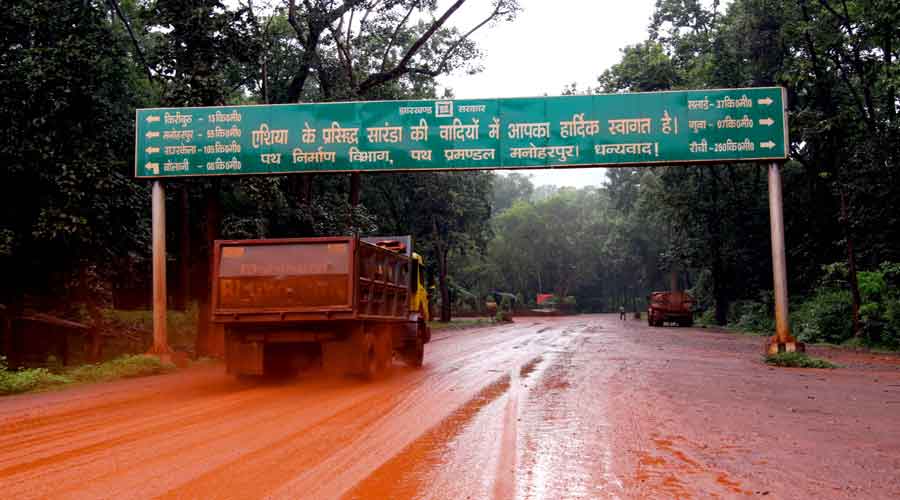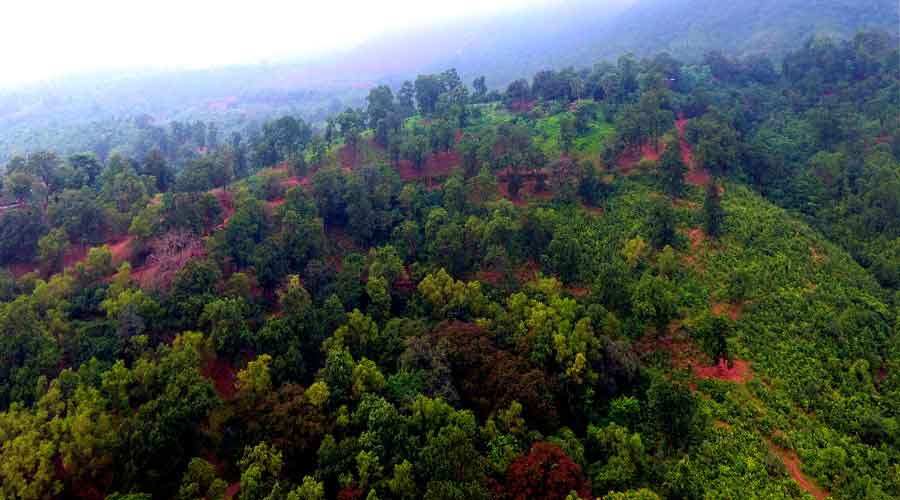The National Green Tribunal (NGT) has directed the Union ministry of environment and forests and Jharkhand’s forest department to submit a report explaining why the Sasangada/Saranda sanctuary in West Singhbhum district has not been declared an eco-sensitive zone, something that would help protect the region’s rich bio-diversity.
The directive was issued by the NGT eastern zonal bench comprising Justice S.P. Wangdi and expert member Nagin Nanda while hearing a petition filed by Delhi based conservationist R. K. Singh.
“Considering the facts and circumstances set out in the application we are satisfied that a substantial question relating to the environment arises in the case,” the bench said and asked the respondents – Union ministry of environment and forests and the Jharkhand forest department _ to file a report at least one week before the next date.
The case is slated for hearing again on October 19.
“My fight is to give status of eco-sensitive zone to the Sansangad/Saranda sanctuary (Asia’s largest sal reserves) which consists of 126 compartments of reserve forest blocks and two protected forest blocks in an area of 31,468.25 hectares which have been included in the working plan for management of Saranda division prepared in 1976-77 to 1995-1995 (forest plans are made for 20 years),” Singh told The Telegraph Online.

The road leading up to the Saranda forests in West Singhbhum district. Bhola Prasad
The wildlife expert, who holds a PhD on the impact of mining on the elephant habitat of Saranda forest from the Wildlife Institute of India (Dehradun), has told NGT that successive state governments in Jharkhand and the ministry of environment, forest and climate change have failed to declare Sasangada/ Saranda sanctuary an eco-sensitive zone.
Hence this area was excluded from the exercise conducted across the country.
“The Jharkhand government is not even recognising Saranda as a sanctuary and have excluded it from the exercises conducted in pursuant to the Supreme Court judgement in the case of Goa Foundation versus Union of India (2011). The Supreme Court had categorically asked the government to declare eco-sensitive zones around all notified sanctuaries and national parks and if the government fails to declare eco-sensitive zones then 10 km from the boundary of the sanctuaries and national park would be deemed as eco-sensitive zone,” said Singh.
Singh further said that the Saranda sanctuary finds mention in a report prepared by the new defunct Indian Board for Wildlife (IBWL) on November 24, 1965 for a delegation of the International Union for Conservation of Nature. The sanctuary also features in the Indian Forest Records: Glossary of terms used in nature conservation and wildlife management, published by the Forest Research Institute (FRI) in 1970.
“It was last mentioned in the working plan for the Saranda forest division for 1976-77 to 1995-96 wherein it is said the sanctuary was notified in February 1968 and covers forest areas of Thalkobad, Karampada, Kodalibad, Tagooda, Karujagdaburu , Samta and Tirilposi,” informed Singh.
A 2016 study by the Wildlife Institute of India found that plant species in the Saranda forest had come down to a mere 87, from over 300 species earlier. They also could not spot a single elephant, even though the 2010 census recorded 253 elephants.
“If it is notified as an eco-sensitive zone then the sanctuary’s diversity would be protected and all activities detrimental for sanctuary would not be undertaken,” said Singh.










